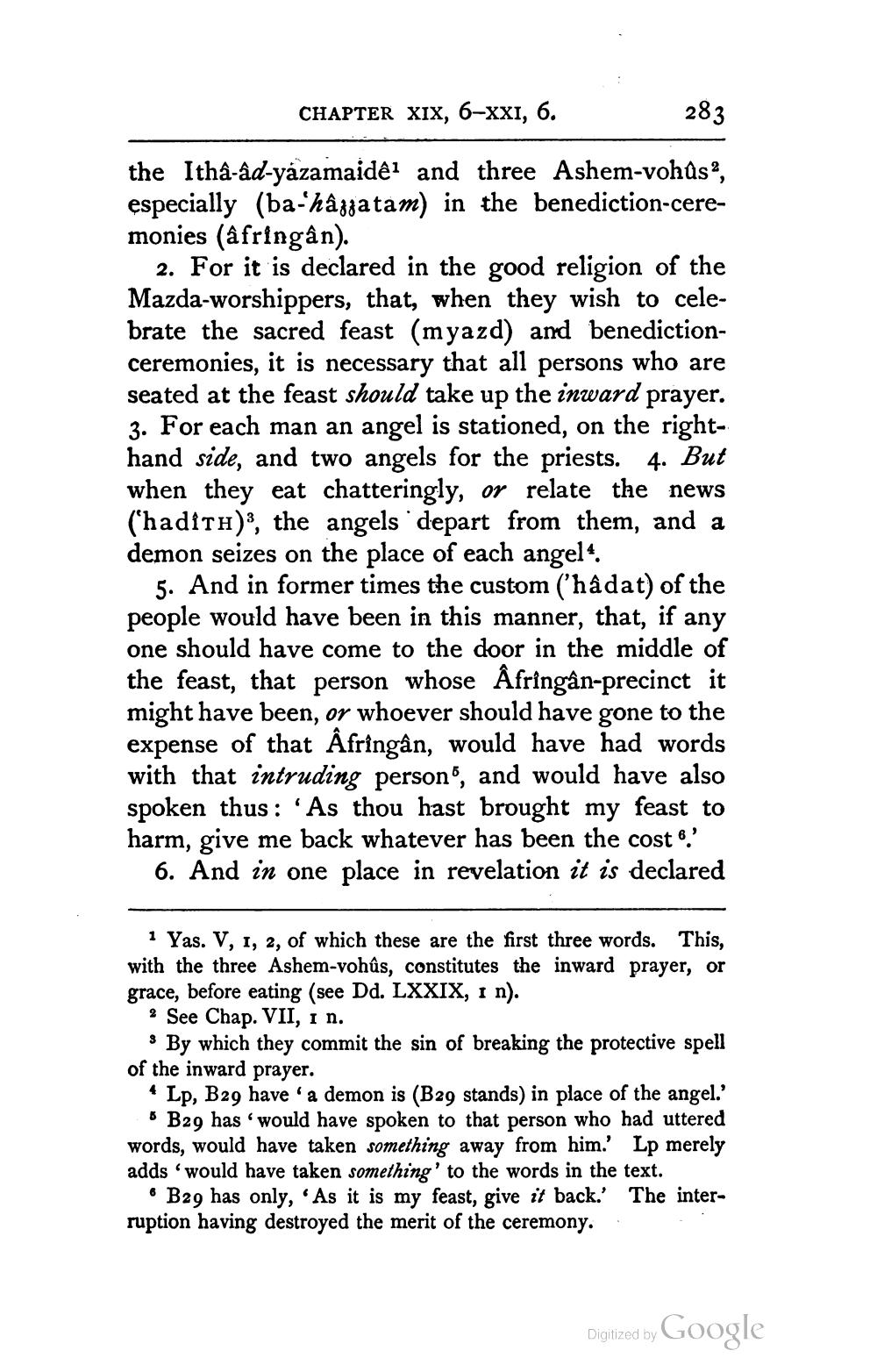________________
CHAPTER XIX, 6–xxi, 6.
283
the Ithâ-âd-yázamaidêi and three Ashem-vohûs, especially (ba-hâžjatam) in the benediction-ceremonies (afringân).
2. For it is declared in the good religion of the Mazda-worshippers, that, when they wish to celebrate the sacred feast (myazd) and benedictionceremonies, it is necessary that all persons who are seated at the feast should take up the inward prayer. 3. For each man an angel is stationed, on the righthand side, and two angels for the priests. 4. But when they eat chatteringly, or relate the news (hadith)s, the angels depart from them, and a demon seizes on the place of each angel4.
5. And in former times the custom ('hâdat) of the people would have been in this manner, that, if any one should have come to the door in the middle of the feast, that person whose Áfringân-precinct it might have been, or whoever should have gone to the expense of that Âfringân, would have had words with that intruding person, and would have also spoken thus: 'As thou hast brought my feast to harm, give me back whatever has been the cost 6!
6. And in one place in revelation it is declared
1 Yas. V, 1, 2, of which these are the first three words. This, with the three Ashem-vohûs, constitutes the inward prayer, or grace, before eating (see Dd. LXXIX, 1 n).
See Chap. VII, 1 n. s By which they commit the sin of breaking the protective spell of the inward prayer.
4 Lp, B29 have a demon is (B29 stands) in place of the angel.'
* B29 has would have spoken to that person who had uttered words, would have taken something away from him.' Lp merely adds would have taken something' to the words in the text.
• B29 has only, 'As it is my feast, give it back. The interruption having destroyed the merit of the ceremony..
Digitized by Google




